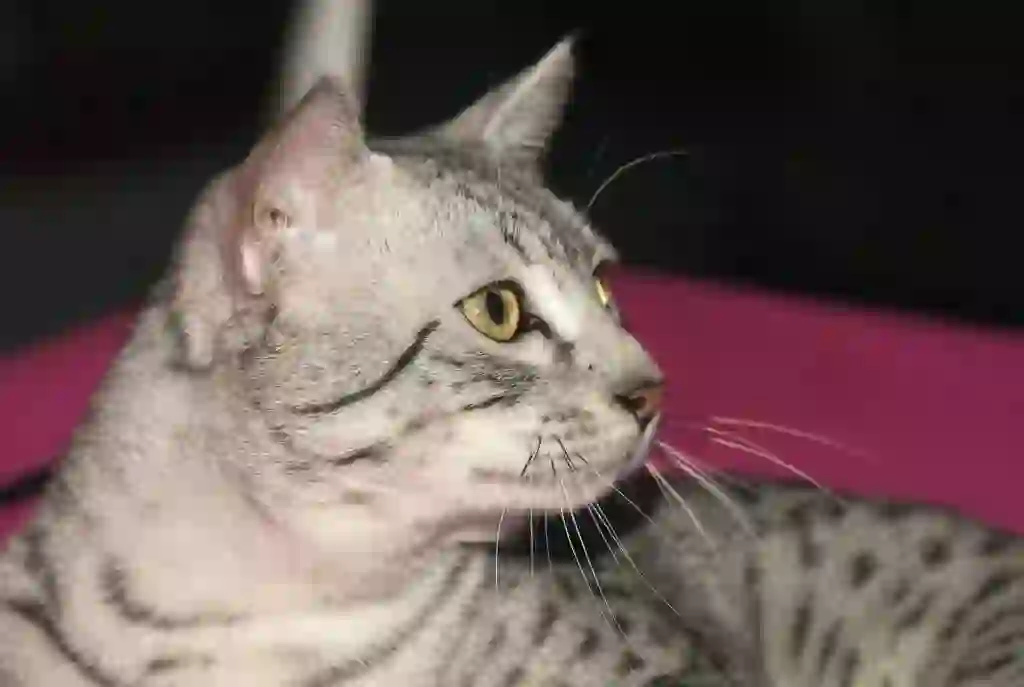
Egyptian Mau
Egyptian Mau
Egyptian Mau
The Egyptian Mau is a cat with the name of Egypt, featuring a wild beauty reminiscent of leopards and cheetahs. This breed has a long history, and it is said that few cat lovers in Japan are familiar with it. Would you like to explore the secrets of the Egyptian Mau with us?
Egyptian Mau Basic Infomation
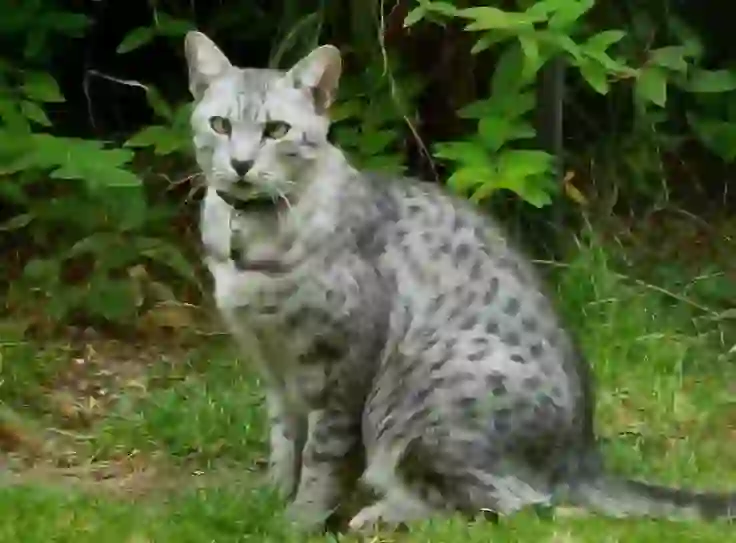
Country of origin: Egypt
Body length: about 35 cm
Weight: Males: 3-5 kg, Females: 3-4 kg
The history of the Egyptian Mau is very ancient, potentially dating back to before 1900 BC. This is because cats resembling the Egyptian Mau can be seen in ancient Egyptian art and similar mummies have been found, although this is just one theory and not certain.
In 1953, a woman named Natalia Troubetskoy obtained a female Egyptian Mau from Egypt. She bred it with an Italian male cat, and subsequently, kittens were born. In 1955, these cats participated in a cat show in Rome.
The cats were well-received, and in 1956, they were moved to the United States where they gained international fame. It is also rumored that Natalia Troubetskoy was actually Princess Natalie of Russia, who had fled from Russia, though there is no definitive evidence for this.
In 1977, the Egyptian Mau was finally recognized as an official breed by the CFA. However, due to a high rate of inbreeding, the breed suffered from genetic diseases for a while. Jean Millwood, a breeder living in America, stepped up to improve the situation.
The first mating partner chosen was a cat with wildcat blood. This breeding was successful and several cats were born. Initially, the CFA was in favor of this cross-breeding but later changed their policy to favor breeding with native Egyptian cats. Jean Millwood then obtained new cats from Egypt and bred them, resulting in the current form of the Egyptian Mau recognized by the CFA.
Egyptian Mau Q&A

What is the origin of the name 'Egyptian Mau'?
The word 'Mau' means 'cat' in Egyptian language. As the breed originated in Egypt, it was named 'Egyptian Mau'.
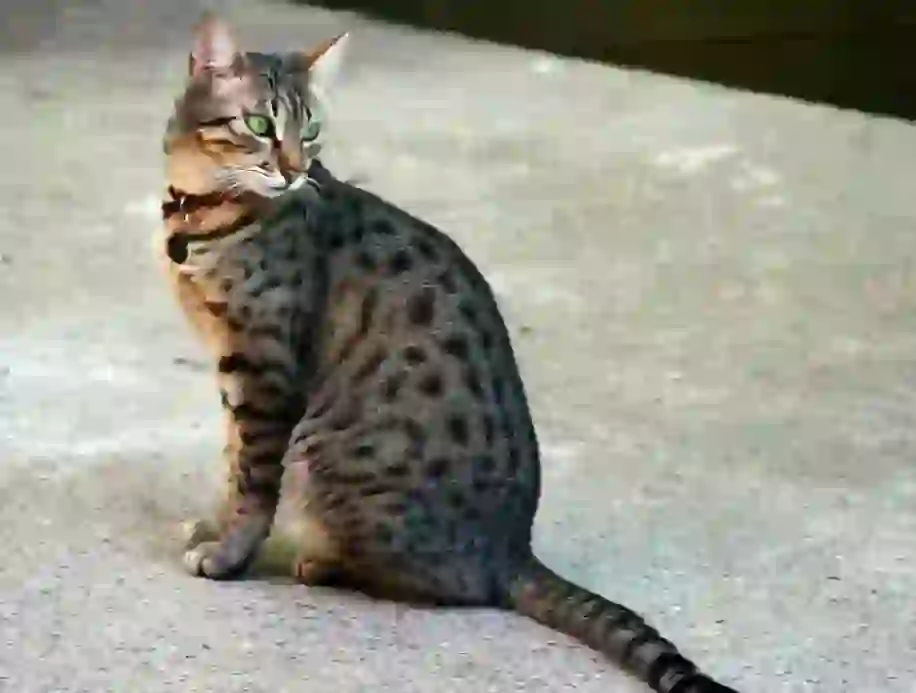
What are the color variations of the Egyptian Mau?
The Egyptian Mau comes in smoke, silver, and bronze colors. The pattern consists solely of spots, known as the spotted tabby. The eyes are only green. Egyptian Mau is a shorthaired breed.
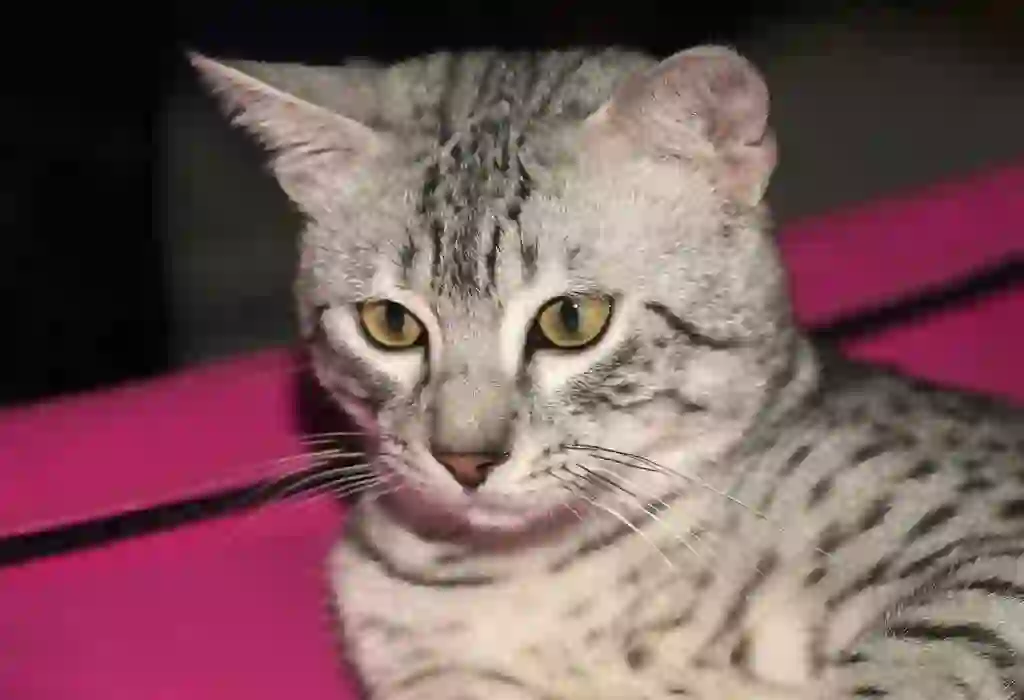
What does the Egyptian Mau look like?
The Egyptian Mau has a wedge-shaped head, almond-shaped eyes with prominent eye-lines, and large ears that are wide at the base. The body type is semi-foreign, muscular yet moderately slender, and the legs are proportionate in length to the body. Additionally, the forehead of the Egyptian Mau bears a mark resembling the scarab beetle, often called the 'scarab mark'.
Furthermore, the Egyptian Mau may have a 'primordial pouch' or 'loose skin' developed from the flanks to the knees. It's important to note that this is not fat, so the sagging appearance is not due to being overweight. This pouch is thought to protect internal organs during fights or provide flexibility for quick movements.
The most distinctive feature, however, is the spotted pattern spread across the body. While not unique in the animal world, the fact that these naturally occurring spots penetrate to the skin is considered exclusive to the Egyptian Mau.
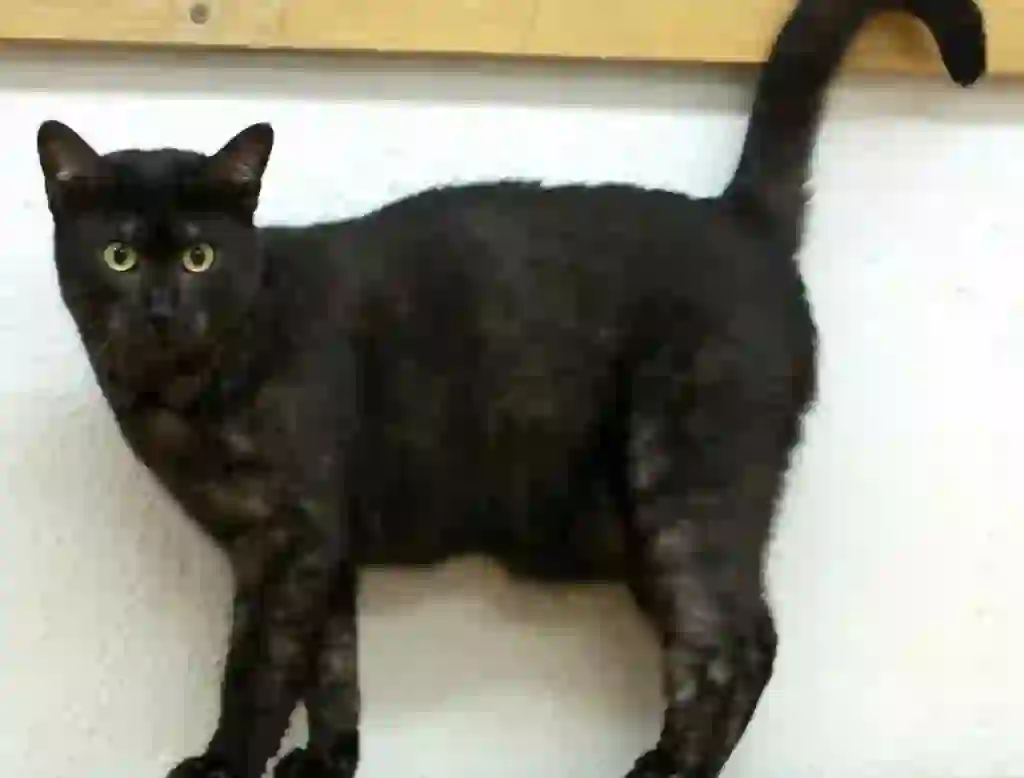
Can the Egyptian Mau run very fast?
Cats are generally known for being fast, but the Egyptian Mau is particularly known for its speed among domestic cats. The average speed of a house cat is about 48 km/h, but the Egyptian Mau can nearly reach 50 km/h. While this doesn't seem much faster than average, when compared to less active cat breeds, the Egyptian Mau is notably quicker.
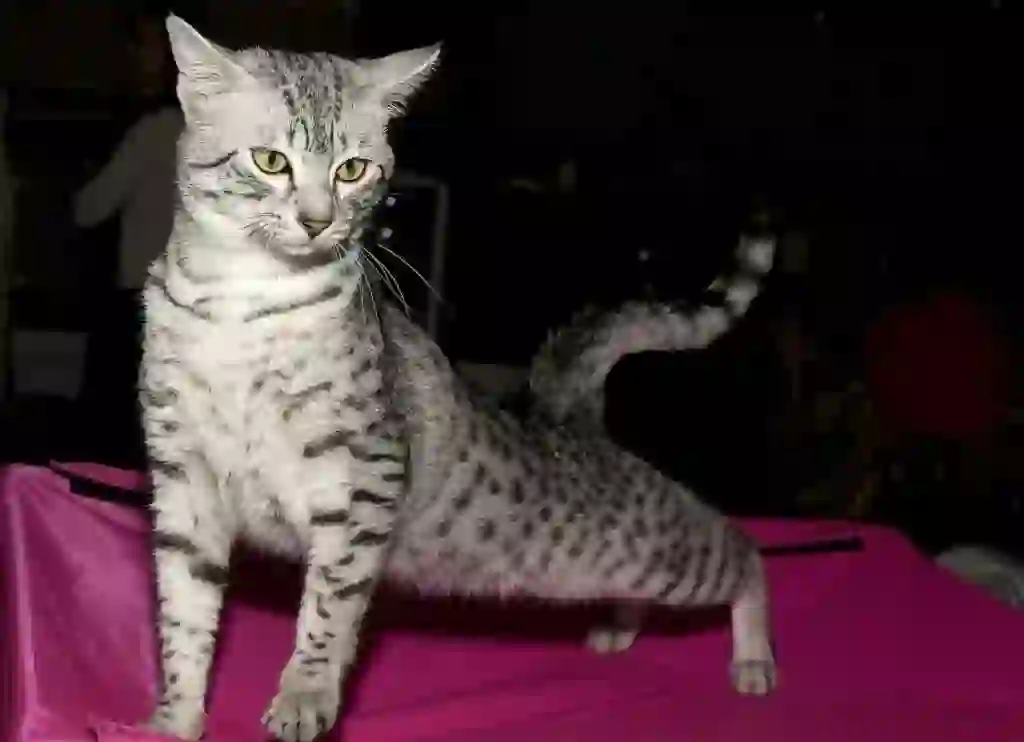
How much does it cost to purchase an Egyptian Mau?
It is rare to find Egyptian Maus in pet shops, so they are typically purchased from breeders or catteries. The cost can range from 200,000 to 400,000 yen. If you find a kitten you like, it's advisable to visit the breeder for a viewing.
Purchasing from a cattery, which is a higher qualification than a general breeder, may cost more. Catteries need certification from organizations like CFA or TICA, and breeders with these qualifications are considered more reliable, adding value to the purchase.
Price can also vary based on several factors such as the kitten's age, the quality of its lineage, and the rarity of its color or pattern.
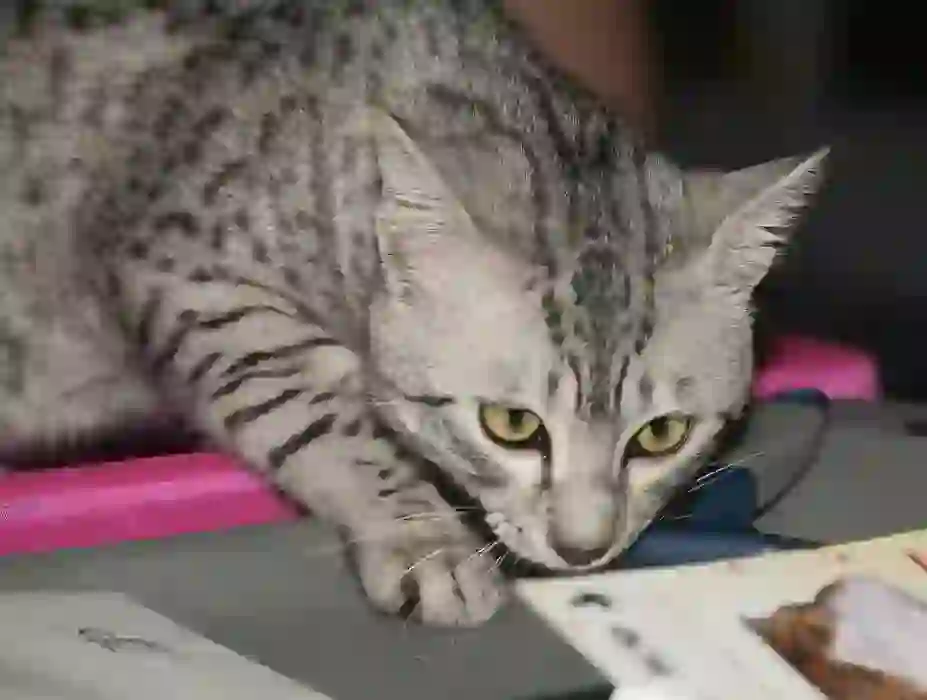
I want to know more about the personality and traits of the Egyptian Mau!
Despite its wild appearance, the Egyptian Mau is quite shy and cautious around strangers, taking time to warm up to new people. However, they are affectionate towards their owners and enjoy being near their human family once they feel secure.
Their strong hunting instincts make them enjoy chasing toys, and playing with a feather wand is an ideal way to bond. They are intelligent and may learn to fetch, adding variety to playtime. Often described as 'dog-like cats', they are obedient and can form strong bonds with their owners.
Egyptian Maus are sensitive and may not adapt well to busy households or living with small children or multiple pets, as this can cause them stress. A quiet home environment where they are the only pet is recommended.
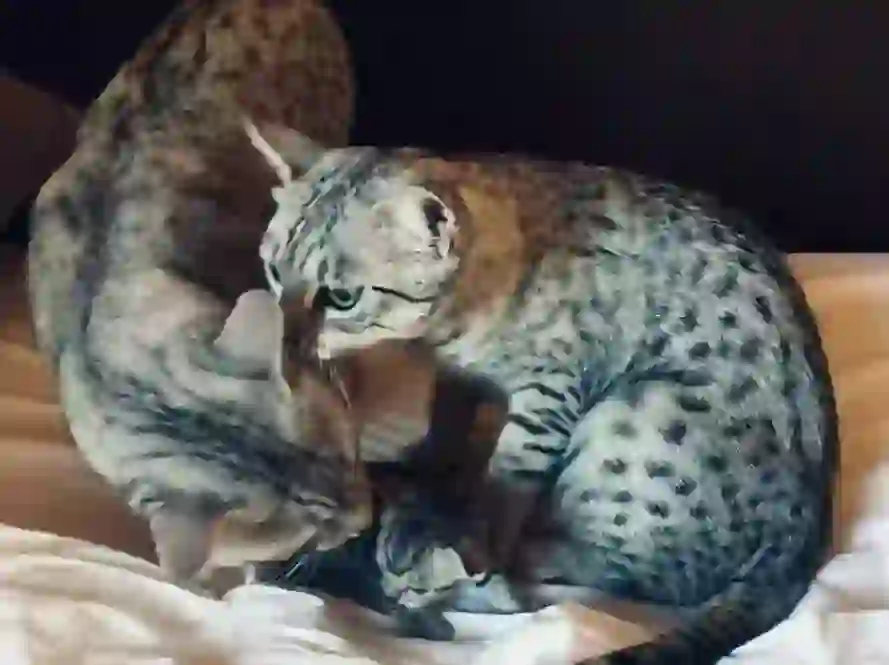
What diseases are Egyptian Maus prone to?
Egyptian Maus are susceptible to lower urinary tract diseases and chronic kidney disease.
Cats generally do not have a natural habit of drinking lots of water, which can strain their kidneys and lead to urinary diseases, such as urinary stones and cystitis. Symptoms include reduced frequency of urination, blood in urine, or changes in urine color. Early veterinary consultation is advised if these symptoms appear.
Routine health checks are recommended as prevention, but even with careful management, chronic kidney disease can develop as cats age, leading to inflammation and eventual loss of kidney function.
Daily measures such as using a circulating water dispenser, providing wet food rich in moisture, and moderating treats can help prevent these conditions.
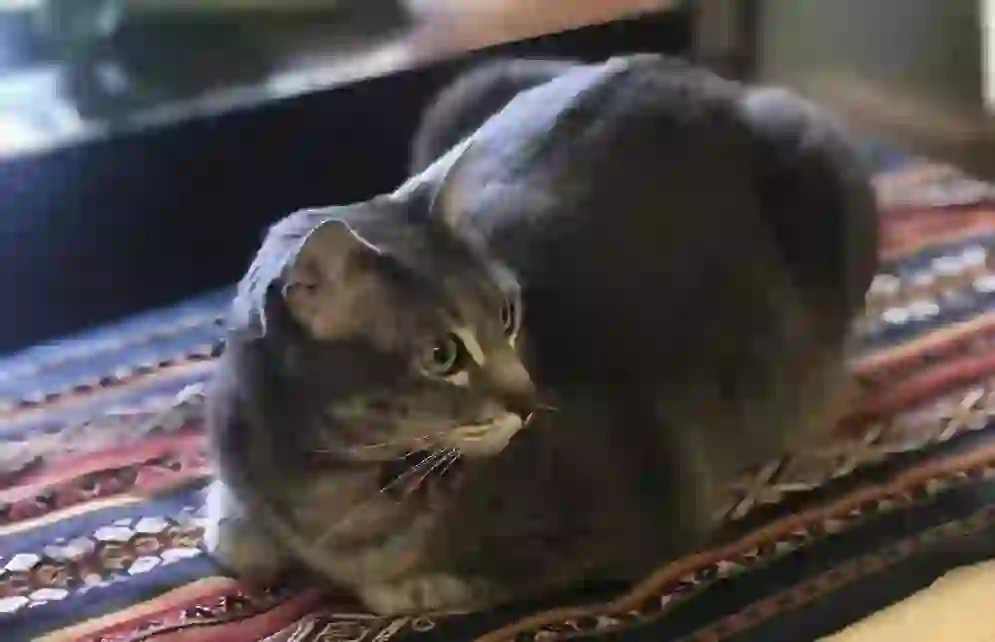
What is the lifespan of an Egyptian Mau?
The lifespan of an Egyptian Mau is typically 10 to 15 years, which is slightly shorter than the average lifespan for domestic cats, which ranges from 12 to 16 years.

Would you like to become a part of the 'Animalbook.jp'?
Turn your knowledge into Q&A and share it with the world. ※Publication will be activated after purchase. Let's share information together!
Egyptian Mau Type of List
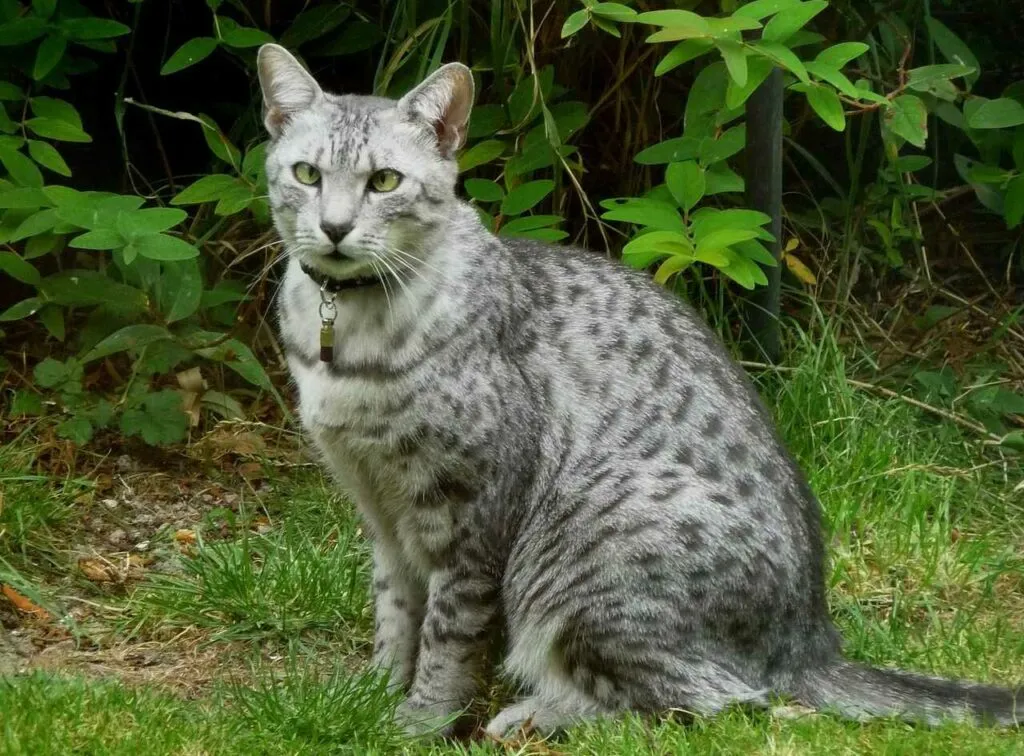
- Smoke
- Silver
- Bronze
Information
Congratulations! You are the first commenter!

Create Your Favorite List!
Egyptian Mau
Save the animals you love! Build your own list to quickly revisit your favorites later.

Would you like to leave a comment?
※Please note: This is for the purchase of rights to post comments within the article.
Find Your Favorites!
Our shop offers a unique and attractive selection of goods themed around various animals.
Egyptian Mau References

- まるごとわかる猫種大図鑑 監修:CFA公認審査員 早田由貴子
- 世界中で愛される美しすぎる猫図鑑 監修 今泉忠明
- The Cat Fancier's Association, Inc. https://cfa.org/egyptian-mau/
- 猫との暮らし大百科 https://www.anicom-sompo.co.jp/nekonoshiori/
- みんなの猫図鑑 https://www.min-nekozukan.com/
- Pet Smile news for ネコちゃん http://psnews.jp/cat/
- 子猫のへや https://www.konekono-heya.com/sitemap.html
- ねこちゃんホンポ https://nekochan.jp/
- 公益社団法人 埼玉県獣医師会 https://www.saitama-vma.org/topics/猫の遺伝性疾患について/
- ひだまり動物病院吉祥寺 http://www.hidamari-hosp.com/postcase/猫の下腹部のたるみ/
Egyptian Mau Introduction of media used

出典:https://commons.wikimedia.org/wiki/File:Egyptian_mau.jpeg

出典:https://commons.wikimedia.org/wiki/File:Egyptian_Mau_Cat.jpg
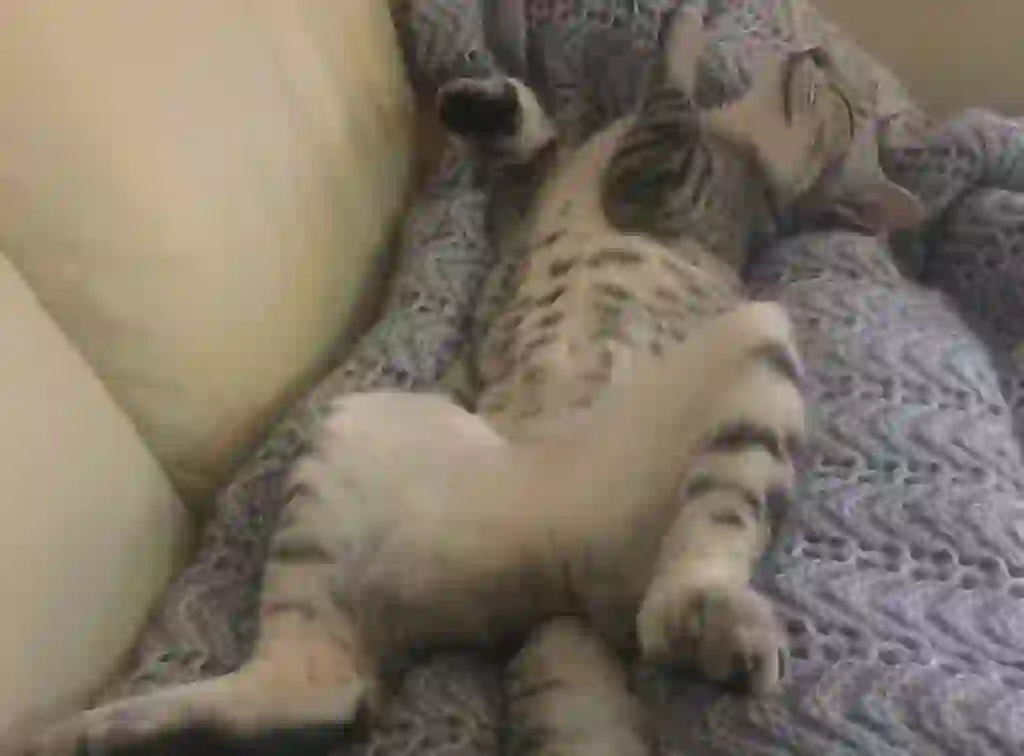
出典:https://commons.wikimedia.org/wiki/File:Goofy_Cat.jpg

Help Enrich Our Animalbook.jp with Your Media!
We are constantly looking to expand and enrich our Animalbook.jp with amazing photos and videos of animals. If you have any media that you'd like to share, please contribute and help us showcase the beauty and diversity of the animal kingdom. Your submissions will be credited and featured in our encyclopedia, reaching a wide audience of animal lovers.
















